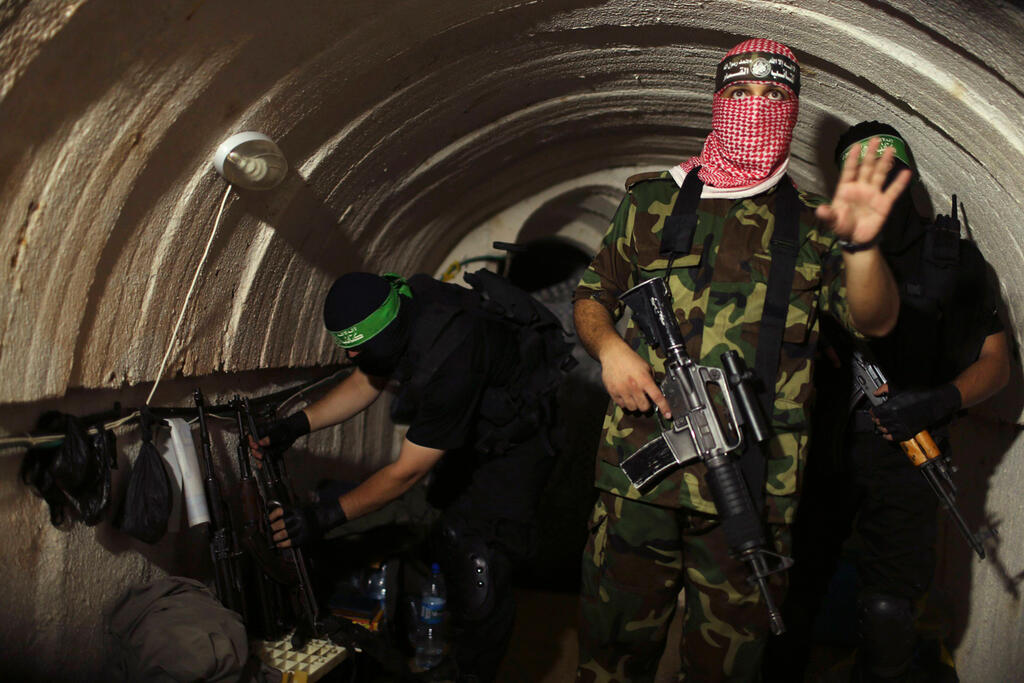During Operation "Protective Edge" in 2014, the UN Secretary General called for a cease-fire. An hour after the cease-fire came into effect, terrorists came out of a tunnel shaft near the city of Rafah and killed the Major Bnaya Sarel, Lieutenant Hadar Goldin and Staff Sergeant Liel Gideoni. This happened on August 1, 2014. Israel agreed to it the night before and the terrorists realized that this was their opportunity. They hit the fighters from a range of a few meters, grabbed Goldin's body, lowered it down the shaft into the tunnel and within a few minutes were already in a safe shelter. His body has not been returned to Israel since.
Read more:
On that day I was on the outskirts of Khan Yunis with another fighting force that was also out in the open since the ceasefire came into effect at 8:00 am, but at 9:30 we heard about the battle and 10 minutes later the cease-fire was history. This event demonstrates well why the political and military leadership in Israel today oppose the world's demand for a ceasefire, and why Hamas is so interested in it. A so-called humanitarian ceasefire causes serious damage to the hostages and Israel's war effort, while Hamas in the tunnels are desperate for it like air to breathe, literally. Cease-fires allow the enemy to significantly improve his condition for the continuation of the fighting.
Israel can agree at most to a humanitarian "pause" lasting 4-5 hours. This is the time needed to provide the civilian residents of Gaza with the humanitarian aid they need to improve the condition of the displaced, the wounded and the sick. Generally, Gaza is a small area and even those who travel by foot from the north to the shelter areas in the south, can do so in four hours or less. No more is needed for the trucks loaded with the food, water and medicine that make their way from Rafah to the Shifa Hospital on the outskirts of the Jabalia neighborhood in northern Gaza.
When you look at the issue in any way possible, you understand why Hamas is so insistent on having a "ceasefire" for two or three days. It will give him significant advantages without him being forced to give almost anything in return, except for a few abductees with foreign or dual citizenship out of the approximately 240 hostages. Below are six reasons why Israel must not agree:
1. Logistically, Hamas fighters and the leadership sitting in the tunnels will get almost everything they need to replenish their supplies underground. They would be able to loot the UNRWA facilities as well as the food and fuel warehouses in Gaza, thus extending their ability to stay underground for many more days.
2. A cease-fire will allow Hamas to restore the communication lines that were damaged between their various compounds above and below the surface. Inside the tunnels run many lines of communication that allow the leadership to transmit orders to outposts that are still fighting. A ceasefire would make it possible to get them to work again, and perhaps also to clear passages in the tunnels that were blocked by the Air Force bombs or by the IDF's activity on the ground.
5 View gallery


Maps and communication devices taken by IDF from Hamas terrorists
(Photo: IDF Spokesperson's Unit)
3. Operationally, a cease-fire will allow Hamas to reorganize and arm itself for the continuation of the fighting. For example, terrorists will be able to reload rocket launchers located close to areas where fighting is going on. These launchers are emptied after firing the rockets or mortar bombs, and halting combat will allow access to them. This means that a cease-fire of several days will allow a drastic increase of launches towards Israel.
4. Hamas will also be able to reorganize its forces and strengthen isolated outposts. Its array of combat tunnels is not continuous, and even the parts that are were damaged and cut off by air force strikes. That is why in the last few days the terrorists have had difficulty moving and reinforcing sectors that the IDF has reached. A ceasefire will allow the terrorists to get on the ground, or break through those passages between the tunnels, and transport troops, anti-tank missiles and IED's.
5. As we saw at the Operation "Protective Edge", a ceasefire is merely a recommendation for Hamas, while the IDF sees itself obligated to uphold it. In any scenario, it is likely that history might repeat itself. Back then when Hamas terrorists came out of the shafts and killed the soldiers nearby, it happened either by being disconnected from the Hamas leadership, or simply because the terrorists don't always obey orders. We will not risk either.
6. But the most serious consequence lies in risking the chance of freeing the hostages. A cease-fire of a few days will allow Hamas to move them, thereby damaging the Israeli intelligence efforts and thwarting the possibility of their release through military action. In addition, time will allow Hamas to collect hostages who are in the hands of other parties in Gaza, thereby increasing its bargaining power.
The bottom line is clear: Israel has nothing to gain from a cease-fire except for a few approval points from the international public opinion, which fades rather quickly as we have seen from past experience. On the other hand, a cease-fire will harm the chance of releasing hostages, delay the process of exposing the terror tunnel shafts and destroying them, allow Hamas terrorists to improve their positions and transport equipment, as well as extend their potential time underground. From Israel's point of view, this is unacceptable. The most Israel can allow is humanitarian pauses of a few hours and only in daylight. This will meet the demands of the Biden administration and the international community for humanitarian aid to the civilian population.






